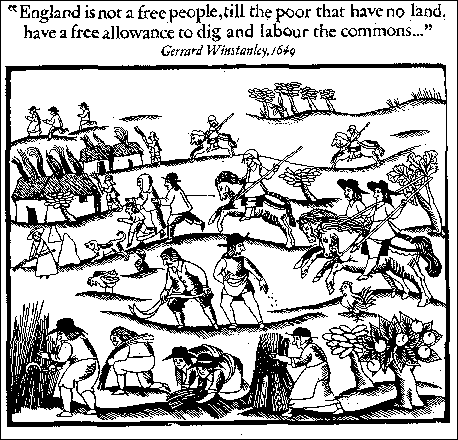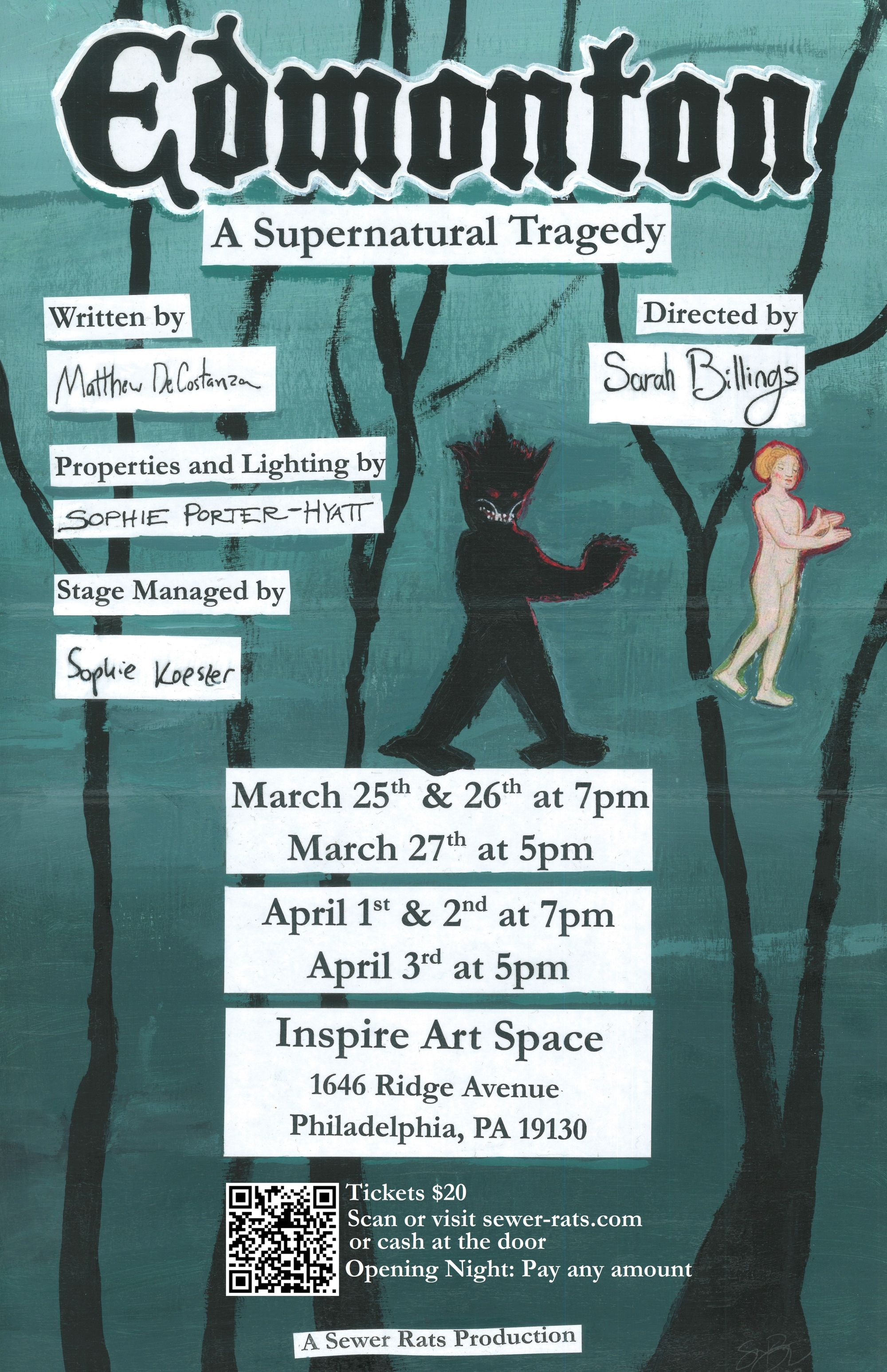I'm really excited to announce that Sewer Rats Productions is putting on a play! The details are above in that glorious poster (and the link above)--and I hope to see you there!
I decided to add my two cents--a flier, if you like, to provide a little teaser for this play. With historical trivia, essentially.
First some background.
“The state was the original capitalist and it remains the greatest. It aspires to incorporate every inch, every corner of the society over which it presides into a vast wealth producing machine.” -Eric Larsen, The Operating System
In pursuit of wealth and hierarchal power, nation-states were centralizing powers in Europe from the 1400s onwards. This forced shift from community to individual, from "primitive communism" to "proto-capitalism" was not bloodless. It was not inevitable either, and it turned virtually ever aspect of rural and political life upside-down, as we shall soon see.
So when we come upon the original 1621 play The Witch of Edmonton (on which Edmonton is based--and elaborated upon) this struggle between capitalists and anti-capitalists (witches, farmers, peasants) had been raging a long time and would range a long time further still.Written near the beginning of the 30 Years War that would help birth the modern nation state on the continent, the original Witch of Edmonton was penned during fraught times. A mere two decades or so later was one of the largest uprisings against the increased tyranny of the state and the church in the form of the Diggers in 1649 at St. George's hill.
The struggle against enclosure, the state and capitalism has not stopped even today, nor must it—and it is that struggle we see again in this adaptation of the popular play, Edmonton.
Lets ease into this with a quote from our favorite anarcho-pacifist, Tolstoy:
"History shows that property in land did not arise from any wish to make the cultivator’s tenure more secure but resulted from the seizure of com- munal lands by conquerors and its distribution to those who served the conqueror....The fruit of their toil is unjustly and violently taken from the workers, and then the law steps in, and these very articles which have been taken from the workmen unjustly and by violence are declared to be the absolute property of those who have taken them."
Key terms to that may be useful to be aware of before going to see Edmonton:
-Enclosure—the act of turning common property or resources into privately owned property. In England in the 17th century, the play Edmonton is set, this was done through destruction of the open-field systems, creation of landlords, brutal repression and dispossession of the peasantry along with their largely communal way of life.
Sylvia Federici puts it like this:
"Not only did cooperation in agricultural labor die when land was privatized and individual labor contracts replaced collective ones; economic differences among the rural population deepened, as numbers of poor squatters increased who had nothing but a cot and a cow, and no choice but to go with "bended knee and cap in hand" to beg for a job."
For a rough equivalent (or rather continuation of these trends) see also, in our present day, the idea of hostile architecture. Two of the more sympathetic characters, Tom of the Roads and Elizabeth, are functionally refugees in Edmonton due to the pressures and horrors of enclosure.

-Commons: lands or resources not owned by any one individual but able to be used by all without distinction (woods, farmland etc.) This was the standard state of affairs in the countryside before the growth of centralized government and capital powers in the period outline above, and what was largely destroyed in the centuries-long struggle against capitalism and hierarchy.

In order for capitalism to work, you need uncompensated or under-compensated labor.
To paraphrase the Marxist historian Sylvia Federici: “For capitalism to succeed women had to be viewed as property and their social status destroyed.”
The methods of this destruction was physical, economic and social. The new pool for exploited labor in the emerging capitalist system was women--and largely, still is, broadly speaking. They were forcibly robbed of social power, bodily autonomy, and dignity--even today, women are paid less than men for the exact same work, discriminated against and expected to provide free labor through home-making and child-rearing in the broader culture. Sylvia Federici lays it out like this, going a bit ahead of the era covered by Edmonton:
"These historic changes--that peaked in the 19th century with the creation of the full-time housewife--redefined women's position in society and in relation to men. The sexual division of labor that emerged from it not only fixed women to reproductive work, but increased their dependence on men, enabling the state and employers to use the male wage as a means to command women's labor. In this way, the separation of commodity production from the reproduction of labor-power also made possible the development of a specifically capitalist use of the wage and of the markets as a means for the accumulation of unpaid labor."
This destruction of women’s bodies, economic standing and social power was done through the devaluing of their labor and through witch-trials and hunts.
For more reading of this, I recommend Sylvia Federici's excellent work Caliban and the Witch for a more thorough interrogation of the subject than I could give in a short blog post. Capitalism’s rise was not inevitable—and was violently fought against throughout the British isles and the world, with women being the leaders of many such resistance movements.
-Re-Commoning: the act of destroying barriers (that create private property) or expropriating wealth seized during the process of enclosure. This was the case at St. Georges Hill with the Diggers under Winstanley in 1649. The Diggers--and the Ranters and their distant cousins, the Quakers-all rebelled against enclosure. The leader of the Diggers at St. George's Hill was a man named Winstanley who wrote, among other things in The New Law of Righteousness:
"I demand whether all wars, bloodshed and misery came not upon the creation when one man endeavored to be a lord over another?...and whether this misery shall not remove...when all the branches of mankind shall look upon the earth as a common treasury for all."
They occupied St. George's hill, and were subject to harassment by the lord of the manor there, who sent hired gangs to attack the Diggers and attempted to burn their collective homes. Several tense months of back and forth proceeded, with the Diggers writing prolifically before being forced to abandoned what they'd reclaimed under physical duress and a show-trial.

The Diggers, by the way, were called that because they took the most obvious signs of enclosure--hedgerows, fences, walls--and, well, obviously, dug them up and destroyed them and restored the commons wherever able. Winstanley is an interesting figure--and not unambiguously sympathetic, as Peter Marshall points out in Demanding the Impossible that Winstanley "despised" the Ranters. To add salt in the wound, the lord of the manor mentioned above charged Winstanley and company as "Ranters", which they were not.
The Ranters were an equally militant sect that managed to be even more anti-authoritarian than the Diggers, and shared similar views towards enclosure and private property, read: it was bad and should be destroyed by force.
Another sticking point was that the Ranters advocated the abolishment of all governments (religious or otherwise, a major bone in the throat of a man fond of religious language and beliefs like Winstanley), were for free love, and according to a contemporary source, held that: "...no Christ but within, no Scripture to be a rule; no ordinances, no law but their lusts, no heaven or glory but here, no sin but what men fancied to be so."
-Subsistence living: creating or growing what you need to survive comfortably, rather than for exchange and profit. Self-explanatory, though capitalists then and now live in dread of the concept.
Private property: Things that are owned by one person or corporation—but can include existentially vital resources like say water, or land that others might need to survive with no penalty. Thusly, profits and access to essential resources by private companies are placed over human happiness and life since it is completely legal, though obviously morally wrong, to allow such apportionment of resources.
This is the dominant feature of capitalism besides wage-labor, which is a whole different can of worms. 'Strong private property rights' is just another way of saying 'negligible care for human rights' in modern political parlance. Whole lot of syllables there.
With this larger view of the times around the play Edmonton is set in, I hope you can more thoroughly enjoy it knowing these bits of trivia.
A quick song to play us out, I think. See you in the theaters, hopefully.
